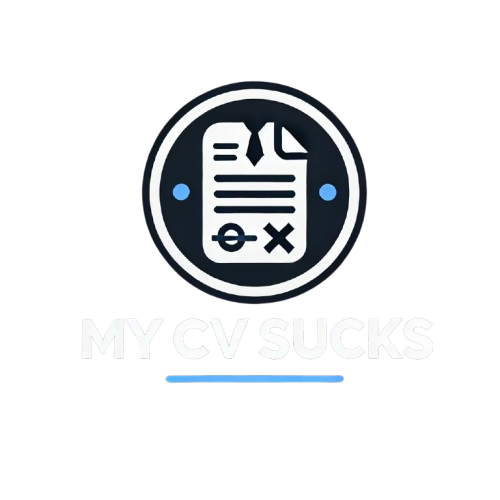Cv writing
How to Quantify Achievements on a CV for a Data Analyst (UK Edition)

How to Quantify Achievements on a CV for a Data Analyst (UK Edition)
Landing your dream data analyst role in the UK requires more than just listing your skills and experience. Recruiters are inundated with applications, and your CV needs to stand out. Knowing how to quantify achievements on a CV for a data analyst is key to getting noticed. This means demonstrating the tangible impact you've made in previous roles using concrete numbers and data. This isn't just about adding numbers; it's about showcasing your value and proving your ROI. Let's dive into how to effectively quantify your accomplishments.
Why Quantifying Achievements Matters for UK Data Analysts
In the competitive UK job market, quantifiable results speak volumes. Generic statements like "Improved efficiency" or "Increased sales" lack the impact of specific data. Recruiters want to see the how and the how much. Did you increase efficiency by 15%? Did sales rise by £100,000? These figures instantly demonstrate your capabilities and make your CV more compelling. Failing to quantify your achievements makes your CV appear less impressive compared to candidates who do showcase their results.
How to Quantify Your Data Analysis Achievements
Here's a structured approach to quantifying your achievements, tailored to the UK data analyst job market:
1. Identify Your Key Achievements
Start by reviewing your previous roles. Focus on projects and tasks where you made a significant contribution. Consider achievements that align with the requirements of the data analyst jobs you are targeting.
2. Use the STAR Method
The STAR method (Situation, Task, Action, Result) is a powerful framework for structuring your achievements. This ensures you provide context, detail, and quantifiable results:
- Situation: Briefly describe the context of the project or task.
- Task: Outline your responsibilities and the challenge you faced.
- Action: Detail the steps you took to address the challenge.
- Result: This is where you quantify your achievements using specific data and metrics.
3. Quantifiable Metrics for Data Analysts
Data analysts work with numbers, so use them! Here are some examples of quantifiable metrics you can use:
- Percentage increases or decreases: "Increased conversion rates by 20%," "Reduced customer churn by 15%."
- Monetary values: "Generated £50,000 in additional revenue," "Saved the company £20,000 in costs."
- Time savings: "Reduced report generation time by 50%," "Automated a process saving 10 hours per week."
- Improved efficiency: "Improved data processing efficiency by 30%," "Increased data accuracy by 10%."
- Number of improvements: "Identified and fixed 50 critical data errors," "Implemented 10 new data analysis techniques."
4. Actionable Examples
Let's look at some examples of how to quantify achievements for a data analyst CV in the UK:
-
Weak: "Improved data quality."
-
Strong: "Improved data quality by identifying and resolving 25% of data inconsistencies, leading to a 10% increase in the accuracy of sales forecasting."
-
Weak: "Developed new data visualizations."
-
Strong: "Developed interactive dashboards using Tableau, resulting in a 20% increase in stakeholder engagement and faster decision-making."
-
Weak: "Analysed customer data."
-
Strong: "Analysed customer purchase data to identify key trends, leading to a targeted marketing campaign that increased sales by 15% in Q3."
-
Weak: "Contributed to improved decision making."
-
Strong: "Developed a predictive model that improved sales forecasting accuracy by 12%, enabling more informed inventory management and saving the company an estimated £15,000 annually."
If you're struggling to quantify your achievements effectively, consider using our free ATS resume analysis tool at https://www.mycvsucks.com. It can help you identify areas for improvement and ensure your CV is ATS-friendly and highlights your key accomplishments.
Tailoring Your CV to Specific UK Job Descriptions
Remember to tailor your CV to each specific job description. Look for keywords and requirements and highlight your relevant achievements using quantifiable data. This shows the recruiter that you understand the role and possess the skills and experience they're looking for.
Beyond the Numbers: Context is Key
While numbers are crucial, don't forget the context. Briefly explain the situation and the impact of your accomplishments. This helps the recruiter understand the significance of your quantifiable results.
Review and Refine
Before submitting your CV, carefully review each achievement to ensure it's clear, concise, and impactful. Ask a friend or mentor to review it for feedback.
Ready to transform your CV and showcase your data analysis skills effectively? Use our free ATS resume analysis tool at https://www.mycvsucks.com to identify areas for improvement and boost your chances of landing your dream job!
Ready to Build a Winning CV?
Take the next step in your career. Register today and get 10 free tokens to start optimizing your resume instantly.
